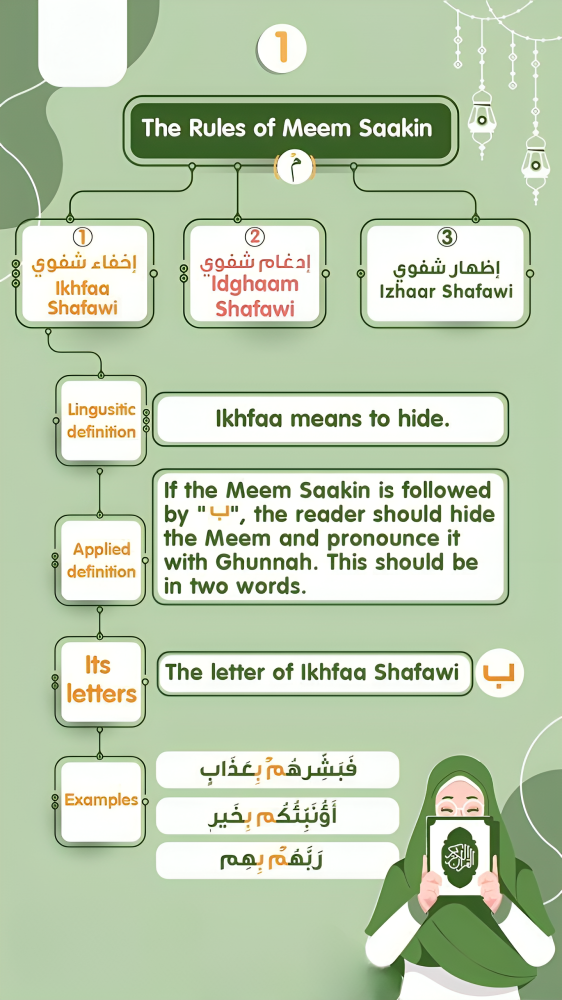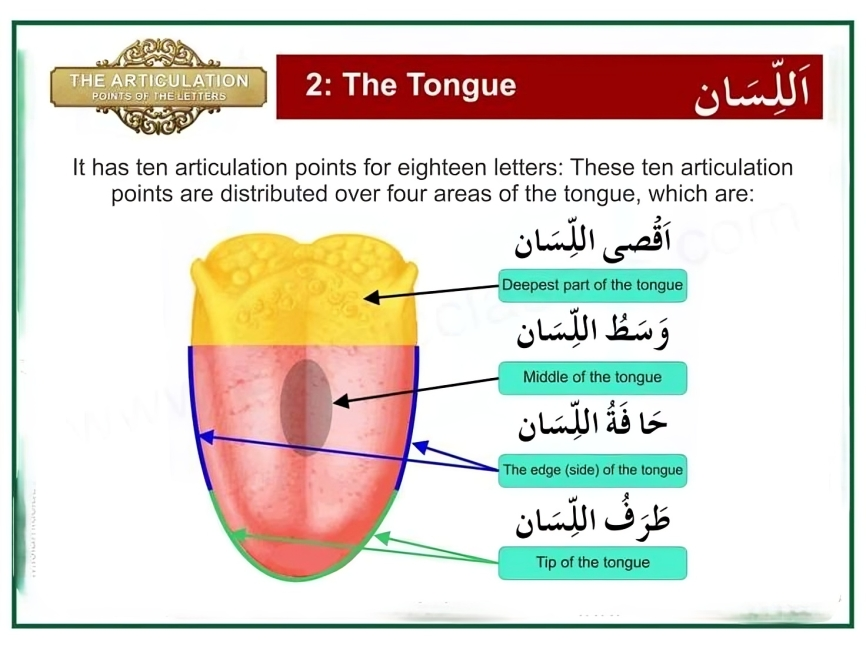Ghunnah (غُنَّة) is one of the essential concepts in Tajweed, the science of proper Quranic recitation. This melodious nasal sound adds beauty to the recitation while ensuring adherence to the proper rules of pronunciation. Let’s explore what Ghunnah is, when it occurs, and how to implement it correctly in your Quran recitation.
What is Ghunnah?
Ghunnah refers to the nasalization sound that naturally occurs when pronouncing the letters Noon (ن) and Meem (م). This sound resonates in the nasal cavity, creating a distinctive humming sound similar to the English “ng” in “sing” or “m” in “hum.” The duration of Ghunnah is typically two counts (Harakah).
The Letters of Ghunnah
There are two primary letters of Ghunnah:
- Noon (ن): When pronounced correctly, the sound originates from the tip of the tongue touching the roof of the mouth while allowing air to flow through the nasal cavity.
- Meem (م): Produced by closing the lips while allowing the sound to resonate through the nasal passage.
Types of Ghunnah
1. Original Ghunnah (الغنة الأصلية)
This occurs when pronouncing a simple Noon or Meem with any Harakah (movement):
- With Fathah: مَ ، نَ
- With Kasrah: مِ ، نِ
- With Dhammah: مُ ، نُ
2. Extended Ghunnah (الغنة المشددة)
This happens when Noon or Meem carries a Shaddah (مّ ، نّ). The duration of Ghunnah here is doubled to ensure proper pronunciation.
Rules for Implementing Ghunnah
- Duration:
- Regular Ghunnah: Two counts
- Ghunnah with Shaddah: Extended to four counts
- Strength:
- The sound should be clear and audible
- Avoid excessive nasalization
- Maintain consistent strength throughout the duration
Common Mistakes to Avoid
- Insufficient Duration: Not holding the Ghunnah for the required counts
- Over-nasalization: Making the sound too nasal or exaggerated
- Irregular Sound: Inconsistent strength in the nasalization
- Incorrect Placement: Not utilizing the nasal cavity properly
Practical Tips for Practice
- Mirror Practice: Use a mirror to observe your facial muscles during pronunciation
- Recording Method: Record your recitation and compare it with expert reciters
- Counting System: Use your fingers to count the duration of Ghunnah
- Group Learning: Practice with others who are learning Tajweed
The Importance of Proper Ghunnah
Correct implementation of Ghunnah is crucial for several reasons:
- It preserves the authentic pronunciation of the Quran
- It maintains the musical beauty of Quranic recitation
- It helps in distinguishing between similar words
- It follows the tradition of Prophet Muhammad’s (ﷺ) recitation
Conclusion
Mastering Ghunnah requires consistent practice and attention to detail. As with all aspects of Tajweed, it’s recommended to learn under the guidance of a qualified teacher who can provide immediate feedback and corrections. Remember that proper Ghunnah not only enhances the beauty of your recitation but also ensures that you’re following the correct rules of Quranic pronunciation.
Understanding and implementing Ghunnah correctly is an essential step in your journey to mastering Tajweed. With dedicated practice and proper guidance, you can develop this skill and enhance your Quranic recitation.
Note: This blog post is meant as an educational resource. For proper Tajweed learning, it’s recommended to study under a qualified instructor who can provide personal guidance and correction.





